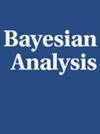校正计算机模型的深度高斯过程
IF 2.5
2区 数学
Q1 MATHEMATICS, INTERDISCIPLINARY APPLICATIONS
引用次数: 8
摘要
. 黑箱计算机模型的贝叶斯校准为模型参数和预测的不确定性的量化提供了一个既定的框架。传统的贝叶斯校准包括计算机模型的仿真和使用高斯过程的加性模型差异项;然后利用马尔科夫链蒙特卡罗进行推理。这种校准方法的局限性在于高斯过程的可扩展性差,并且需要指定一个合理的协方差函数来处理计算机模型的复杂性和差异。在这项工作中,我们提出了一个新的校准框架,其中这些挑战是通过将高斯过程组成为深高斯过程和可扩展变分推理技术来解决的。由于这个公式,可以获得灵活的校准方法,这很容易在具有自动区分和利用gpu类型硬件的开发环境中实现。我们展示了我们的建议如何通过对各种校准问题的实验验证来产生最先进的强大替代方案。最后,我们展示了如何进行自适应实验设计,并讨论了所提出的校准模型的可识别性。本文章由计算机程序翻译,如有差异,请以英文原文为准。
Deep Gaussian Processes for Calibration of Computer Models
. Bayesian calibration of black-box computer models offers an estab-lished framework for quantification of uncertainty of model parameters and predictions. Traditional Bayesian calibration involves the emulation of the computer model and an additive model discrepancy term using Gaussian processes; inference is then carried out using Markov chain Monte Carlo. This calibration approach is limited by the poor scalability of Gaussian processes and by the need to specify a sensible covariance function to deal with the complexity of the computer model and the discrepancy. In this work, we propose a novel calibration framework, where these challenges are addressed by means of compositions of Gaussian processes into Deep Gaussian processes and scalable variational inference techniques. Thanks to this formulation, it is possible to obtain a flexible calibration approach, which is easy to implement in development environments featuring automatic dif-ferentiation and exploiting GPU-type hardware. We show how our proposal yields a powerful alternative to the state-of-the-art by means of experimental validations on various calibration problems. We conclude the paper by showing how we can carry out adaptive experimental design, and by discussing the identifiability properties of the proposed calibration model.
求助全文
通过发布文献求助,成功后即可免费获取论文全文。
去求助
来源期刊

Bayesian Analysis
数学-数学跨学科应用
CiteScore
6.50
自引率
13.60%
发文量
59
审稿时长
>12 weeks
期刊介绍:
Bayesian Analysis is an electronic journal of the International Society for Bayesian Analysis. It seeks to publish a wide range of articles that demonstrate or discuss Bayesian methods in some theoretical or applied context. The journal welcomes submissions involving presentation of new computational and statistical methods; critical reviews and discussions of existing approaches; historical perspectives; description of important scientific or policy application areas; case studies; and methods for experimental design, data collection, data sharing, or data mining.
Evaluation of submissions is based on importance of content and effectiveness of communication. Discussion papers are typically chosen by the Editor in Chief, or suggested by an Editor, among the regular submissions. In addition, the Journal encourages individual authors to submit manuscripts for consideration as discussion papers.
 求助内容:
求助内容: 应助结果提醒方式:
应助结果提醒方式:


